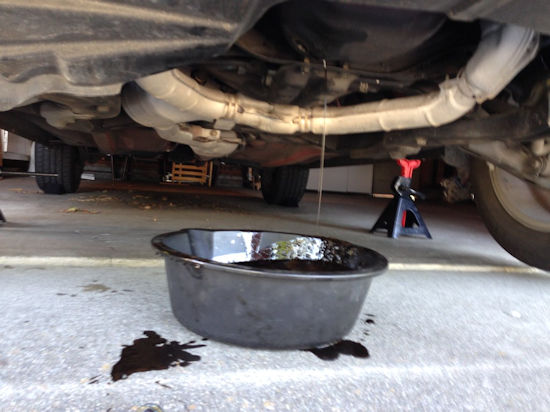The old saying “A stitch in time, saves nine” applies to cars as well. Spending a little money each year on maintenance can avoid major repairs later. Unfortunately, there is more to owning a car than simply putting gas in it. You need to change the oil frequently. You need to do essential maintenance and change out parts that wear out before they become a problem.
Here are a few of the basic car maintenance and repair issues you need to address so you save money in the long run and don’t end up with expensive car repairs like an engine overhaul or a transmission replacement.
Oil Change
We’ve already mentioned changing the oil as a small car repair, but we need to address it in more detail because it is one of the most common maintenance tasks you need to perform, and when you don’t do it, the outcome can result in major car repairs. Oil and filter changes are simple car maintenance tasks that usually take less than an hour. Just make sure that wherever you take your car for an oil change, you get the right kind of oil for your vehicle, and even though it may not be absolutely mandatory, change the filter every time, since an oil filter usually costs less than $10 is well worth it. You can get a top-of-the-line filter for a couple of dollars extra, which is money well spent. If you want to save even more, learn to change your oil yourself. It is relatively easy to do and will save you $20 or $30, and you can be sure it is done properly. Just find a YouTube video on your particular vehicle type. If your vehicle has less than 100,000 miles, you should change your transmission fluid as well. This will prolong your transmission life as well. Unfortunately, if your transmission fluid has never been changed and your car has more than 100,000 miles, you might be better leaving it alone.
Brake Pads
Unfortunately, there are no certain miles the car needs to travel, nor is there a specific time when you need to have the brakes inspected. The wear on brake pads and rotors depends on several things, but you want to check your brakes every 25000 miles as a general rule. You might also look for signs of brake pad wear. Some signs include slower stopping, sound when braking, pulling to one side, and vibration.
By replacing your brakes when they start to wear, you prevent further damage to the brake disks and rotors, which could be a much more expensive job.
Windshield Replacement
It is not uncommon for windshields to get cracks or knicks, especially if you drive behind a truck that kicks up rocks or gravel. It would be best if you had the windshield fixed or replaced when this happens. Some states require safety inspections that check things like brake pads, tire wear, and windshield cracks. In that case, you may be forced to get a windshield replacement.
Get a Tune-Up
When you get a basic tune-up, your mechanic will change your car’s spark plugs, fuel filter, and air filter. They will inspect the hoses and check the wiring. The changing of sparkplugs and the fuel filter is essential. Fuel injection uses a lot of pressure, and you need to keep the filter clean to prevent the need for part replacement.
Basic car maintenance and repair is not so much a cost but an investment in the car that transports you everywhere. You need to do preventive maintenance and basic repair to prevent more expensive repairs or replacements in the future.
You might also like:
- Calculating Miles Per Gallon
- Calculating Average Cost of Gas Per Month
- Ways You Can Make the Expenses of a Family Car Better Fit Your Budget
- Why to Set up a Car Care Fund
- Buying Your First Car? Here Are Some Tips
- Car Hunting on a Budget
- Car Repair on a Budget
- The Family Minivan: 4 Money-Saving Steps to Fix Up Your Vehicle



